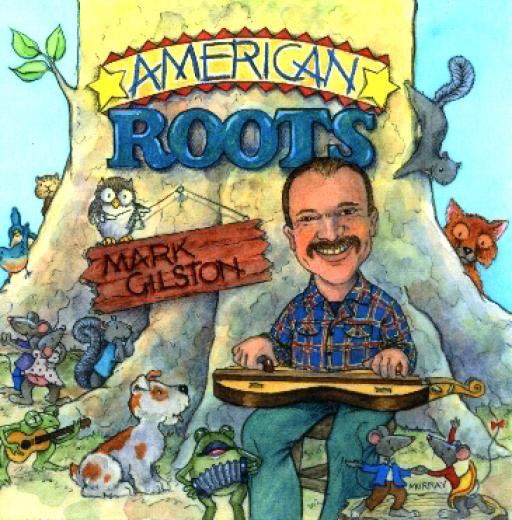Die Gedanken Sind Frei (My Thoughts are Free)

musician/member name: Mark Gilston
Duration: 00:01:22
description:
Duration: 00:01:22
description:
Mark Gilston plays a famous German song from the late 18th century. The text was first printed in 1780 and associated with Switzerland, but it has antecedents dating back to the 12th century. The anti-fascist sentiment still resonates strongly today.
Die gedanken sind frei
My thoughts freely flower
Die gedanken sind frei
My thoughts give me power
No scholar can map them
No hunter can trap them
No man can deny
Die gedanken sind frei
I think as I please
And this gives me pleasure
My conscience decrees
This right I must treasure
My thoughts will not cater
To duke or dictator
No man can deny
Die gedanken sind frei
Tyrants can take me
And throw me in prison
My thoughts will burst forth
Like blossoms in season
Foundations may crumble
And structures may tumble
But free men shall cry
Die gedanken sind frei
For tabs, CDs, books, and Skype lessons, visit https://www.markgilston.com/
Die gedanken sind frei
My thoughts freely flower
Die gedanken sind frei
My thoughts give me power
No scholar can map them
No hunter can trap them
No man can deny
Die gedanken sind frei
I think as I please
And this gives me pleasure
My conscience decrees
This right I must treasure
My thoughts will not cater
To duke or dictator
No man can deny
Die gedanken sind frei
Tyrants can take me
And throw me in prison
My thoughts will burst forth
Like blossoms in season
Foundations may crumble
And structures may tumble
But free men shall cry
Die gedanken sind frei
For tabs, CDs, books, and Skype lessons, visit https://www.markgilston.com/



That's delightful!
Nice playing as always Mark!
Thank you for the very interesting and extensive history. It's always great to have songs put in historical context. And now I'll have an afternoon of interesting links to followup (:
Nice playing as always Mark!
This is indeed one of Germans most prominent folk songs. Although the first text dates back to 1780 the most sung lyrics as of today are from the 1840s before the first (failed) German revolution in 1848. They were written bei Hoffmann von Fallersleben during the times of censorship after the Karlsbad decrees by Metternich (an austrian stateman working for the Habsburger dynasty doing his best to surpress the democratic AND nationalist/antisemtic student movements of the time, he failed in both):
https://en.wikipedia.org/wiki/Die_Gedanken_sind_frei
Von Fallersleben himself was quite active in the democratic movement (and lost his job as a university professor due to it) and wrote the "Song of the germans" (it's third verse is now our national anthem) (yes the one with Deutschland über alles), but also wrote antisemitic verses. So he is quite a good example for the two sides of 19'th century German student movement. For this reason I actually don't like our anthem very much: The third verse is (Unity and Freedom is a theme in a lot of anthems!) ok. The second verse just praises German singing, wine and women (there are worse things to praise in an anthem).
The first verse however is basically a call to arms to unite all German speaking people under one nation. This might sound harmless but at that time this would mean that the new german state would contain parts of Denmark up to Italy and from the Netherlands up to todays Lithunia (which was at that time a part of the russian empire). So it's no wonder the first verse is still quite popular under Germanys neofacists.
Interesting enough von Fallersleben didn't wrote it in Germany but in England: He wrote it during a vacation on the north sea island Helgoland (at that time an English colony, today Germanys only high seas island, our other islands are near the coasts).
This being said: "Die Gedanken sind frei" is a great song and von Fallersleben wrote also some of Germanys most known and loveliest children songs ( Alle Vögel sind schon da , Ein Männlein steht im Walde , Morgen kommt der Weihnachtsmann , Summ, summ, summ Kuckuck, Kuckuck, ruft’s aus dem Wald )
Since the swiss version dates back to the 1780s (some years before the french revolution) I guess that it started as a kind of protest during the enlightment era updated whenever needed.
Just some examples: During national socialism (who let's face it actually did a lot of things von Fallersleben propably would have agreed with) Robert Scholl (father of recistance fighters Hans and Sophie Scholl of the weiße Rose) was interned for several months. Sophie Scholl then played "Die Gedanken sind frei" on her recorder near the prison so her father would hear it.
During the McCarthy era Pete Seeger recorded it with two additional verses in English:
And during the 1989 mass protests in the GDR the song was played by the Dresden Staatskapelle orchestra which was joined by the protesters.
A more dubious usage was during the last years since people from the "anti-vaxxers/anti-mask" Camp also song this song. In one interview one member of them even compared their protests to the Scholl siblings
Sorry for my rambling on German folklore and it's dual uses
Thanks Mark; not only for the fine playing, but also for the history of the song. It is one of my favorites.
Ken
"The dulcimer sings a sweet song."
Thank you Mark. Well played! Great sentiments!